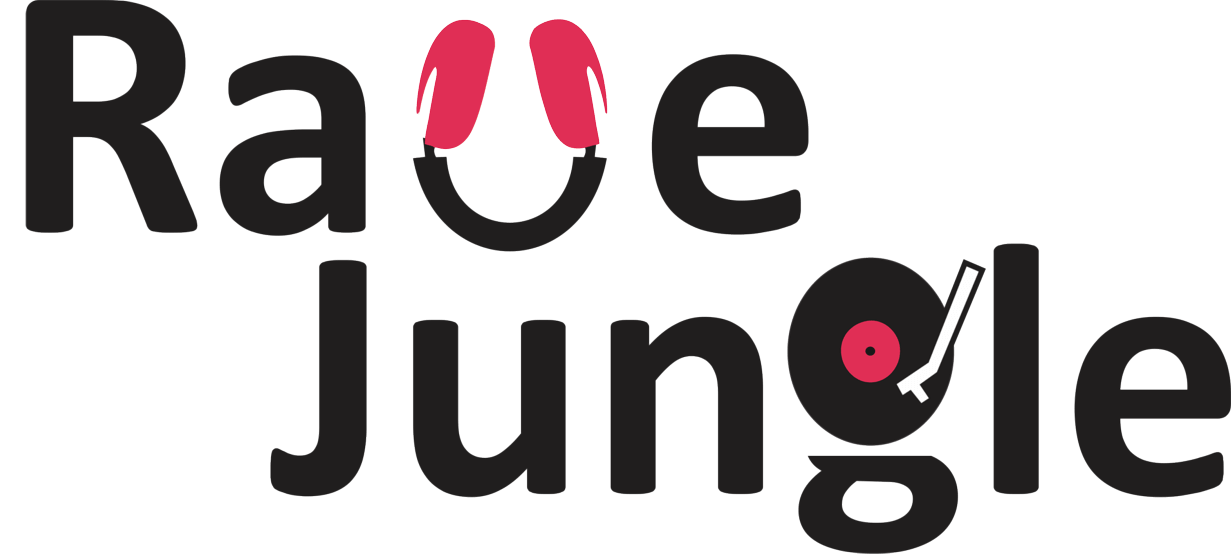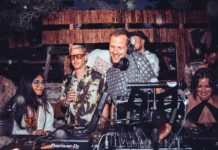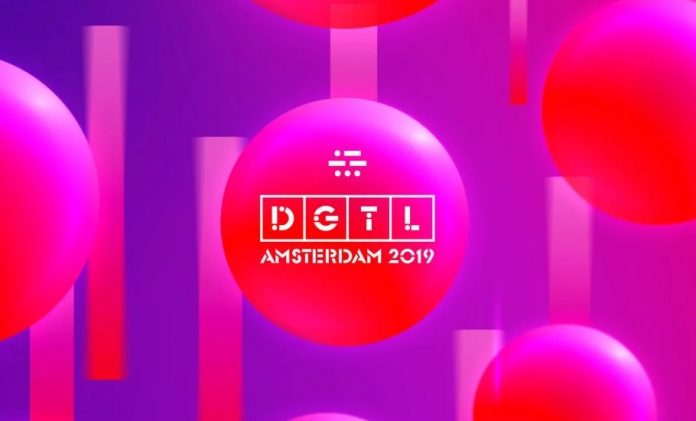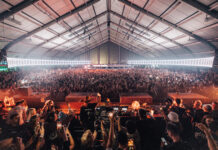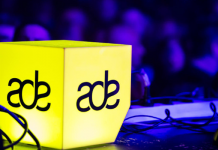After winning the ‘International Greener Festival Award’ last week – which makes DGTL the most sustainable festival in the world – DGTL Festival Amsterdam announces the sustainability program for its 2019 edition.
Highly aware of its environmental impacts, the festival has one very clear goal; to become the world’s first circular and regenerative festival by 2020. In 2019, the festival will keep a steady course, aiming to achieve their ambitions.
This year, the festival will refine some of its circular systems of 2018, while also kicking off new sustainability projects. During the Easter weekend, DGTL Festival will continue to blaze the trail for sustainable and circular events at the NDSM-Wharf in Amsterdam.
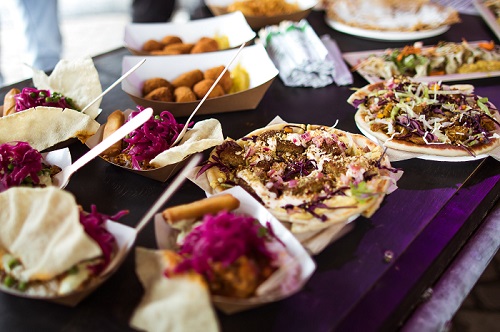
CLOSING FOOD LOOPS
Annually, 1.3 billion tonnes of food is lost or wasted, which comes down to about ⅓ of all food produced for human consumption. This is a major pressing problem, impacting the environment tremendously. Therefore, last year DGTL introduced the world’s first circular foodcourt, turning food waste into compost.
In 2019, DGTL takes the next step by flipping its food system in collaboration with Instock, The Food Line-Up and the Revolution Foundation. Instead of using food waste for compost, the festival will use imperfect and surplus produces to cook their (meat-free) meals with. The menu is no longer based on what visitors might want to eat, but on that 30% of produce that is never eaten, coming from the available residues of local food chains.
INSTOCK
Founded by supermarket managers, Instock saw the opportunity to create a better destination for unsold products. That’s the reason why they created Instock with the support of one of the biggest supermarket chains of the Netherlands; Albert Heijn.
The founders revalue surplus products by means of their restaurants, products and catering service. Moreover, Instock wants to create awareness around food waste and inform people about the possibilities to prevent it from happening.
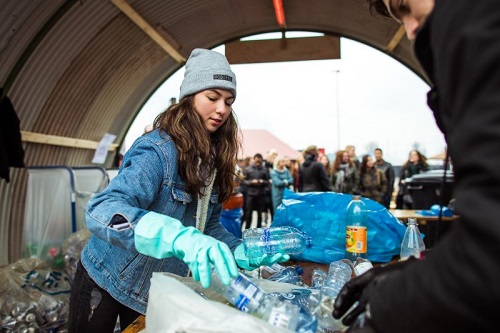
NO MORE TRASH BINS
At a circular festival, there is no place for waste. So in 2018, DGTL shifted from seeing “waste as a problem” to “resources as a solution”. The festival no longer sees waste as materials to be burned or landfilled but as a collection of precious resources. Therefore, this year DGTL waves all trash bins goodbye. The festival provides three central “resource collection points” for visitors, in order to ensure a high rate of recycling of resources.
All resources are to be collected there, to be made ready for separation and processing. On-site and for all visitors to see, the festival will sort, clean and process all resource flows at their “Recycle Hub”. This hub involves visitors in the process, aiming to shift the perspective of the public when it comes to circular use of precious resources.
GIVING BACK TO THE CITY
Every year, DGTL Festival returns to the NDSM-Wharf, a breathtakingly beautiful terrain. Instead of hosting a festival there, and taking only what’s needed from that location, DGTL this year chooses to give something back to the local community of the NDSM-Wharf. This year, three students of the master’s program MADE, design a circular and modular object that will get a permanent place at the NDSM-Wharf.
The structure will function as festival lighting during the festival. After the festival, the structure will be reshaped to serve an urban function permanently: public lighting at the NDSM-Wharf, enriching the public space of the city of Amsterdam.
SUSTAINABLE ARTIST HANDLING
In 2019, DGTL will host and transport artists as sustainably as possible. This is the first time the festival will accommodate artists in Amsterdam’s circular hotel Jakarta. Hotel Jakarta has an energy neutral building, making it one of the most sustainable hotels in The Netherlands. In terms of transportation, all artists of DGTL Amsterdam 2019 will be transported in electric vehicles.
ECO-FRIENDLY TOILETS
At DGTL Amsterdam 2019, DGTL will feature composting toilets by KAKIS. Composting toilets use the natural processes of decomposition and evaporation to recycle human waste. Waste entering the toilets is over 90% water, which is evaporated and carried back to the atmosphere through the vent system. The small amount of remaining solid material is converted to useful fertilizing soil by natural decomposition.
INNOFEST
Every year, DGTL Festival teams up with Innofest to give way to innovators and inventors to test their cases. Innofest uses leading Dutch festivals to as testing beds for innovations, turning their festival grounds into true living-labs. This year, Innofest puts forth three innovators: Litti, Calix, and Mobiele Stroom.
At a festival, throwing cigarette butts on the ground is nothing new, with ashtrays nowhere to be found nearby. This creates a considerable flow of butts on the ground, which almost every festival experiences as a problem. Students from NHL University of Applied Sciences developed the Litti, an ashtray and lighter in one. In 2019, DGTL Festival will trial the Litti at large scale.
Besides the Litti, DGTL will pilot Calix, which are 3D-printed cup holders for festival goers. Thirdly, DGTL will test an innovation of Mobiele Stroom, which uses compressed natural gas to generate energy, heat up tents and warehouses, and circulate and ventilate spaces. By doing so, the festival reduces a great amount of CO2-emissions.
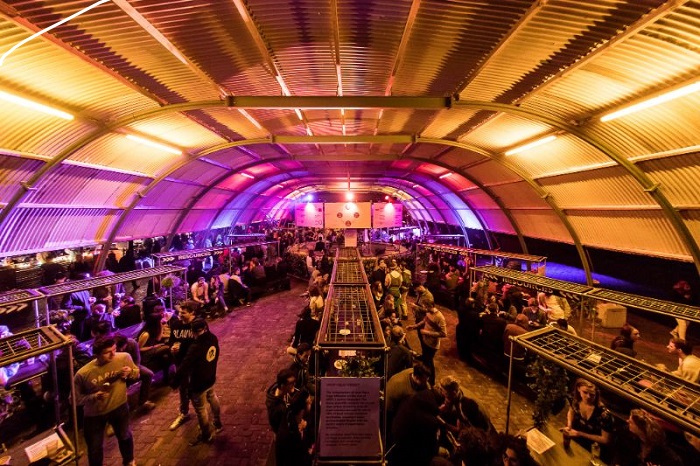
REFINING 2018’S CIRCULAR SYSTEMS
The single most important component of any sustainability strategy is the baseline measurement or analysis. Chasing change without knowing to have a clear overview of the event’s impacts is highly inefficient. Therefore, in 2017 DGTL introduced the Material Flow Analysis (MFA) to the festival industry, providing a clear snapshot of DGTL’s metabolism: the resource flows that enter and exit the festival, and the different kinds of impacts these flows are associated with. The MFA quantifies the flows of materials, energy, and water that flow through the festival. DGTL will conduct an MFA at DGTL 2019 for the third year in a row, in order to measure their circular performance.
One of the most visible components of the Sustainability program is the use of the hardcup-system. Visitors no longer get drinks served in traditional disposable softcups but in a reusable hard cup. This not only saves a huge amount of plastic waste but also makes visitors reflect on their current “linear” behavior (take-make-waste) and it presents a new perspective on reusing precious resources.
Regarding energy, DGTL does not shy away from the challenges of the energy transition, in fact, the festival embraces them. DGTL Festival always works with a smart energy plan, maximizing the consumption of energy from the power grid and other renewable sources. This year, DGTL Festival aims to be powered by 100% wind energy from the grid of the city of Amsterdam.
FULL PROGRAM ANNOUNCED IN THE COMING WEEKS
In the coming weeks, the last additions to the sustainability program will be announced. Stay tuned!
AWARDS
DGTL has already received three awards this year for its efforts in the field of sustainability. Last week they won the International Greener Festival Award, which makes DGTL the most sustainable festival of the world. Earlier this year they won the Greener Transport Award and the Outstanding Award from the A Greener Festival Awards.
DGTL Amsterdam 2019 – Redesigning Our Food System


